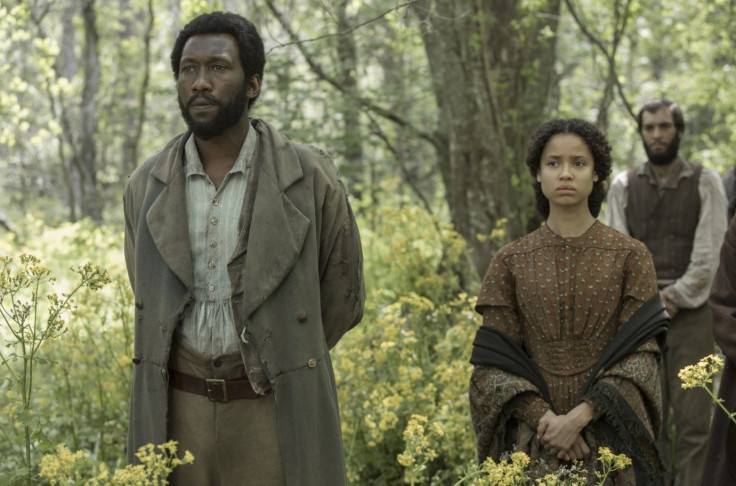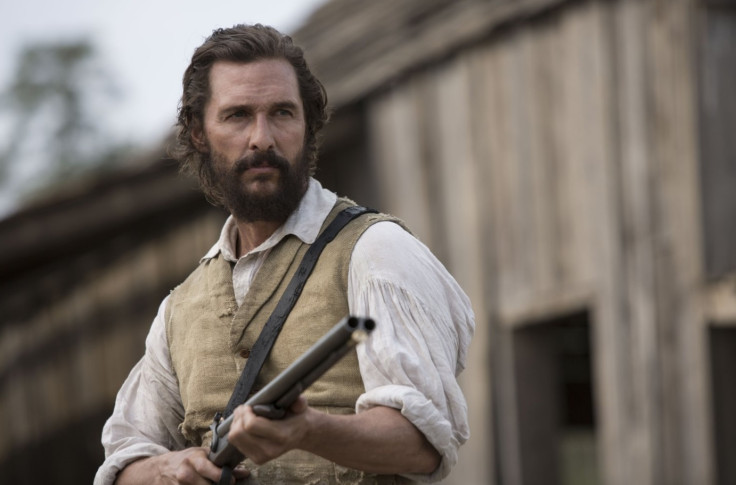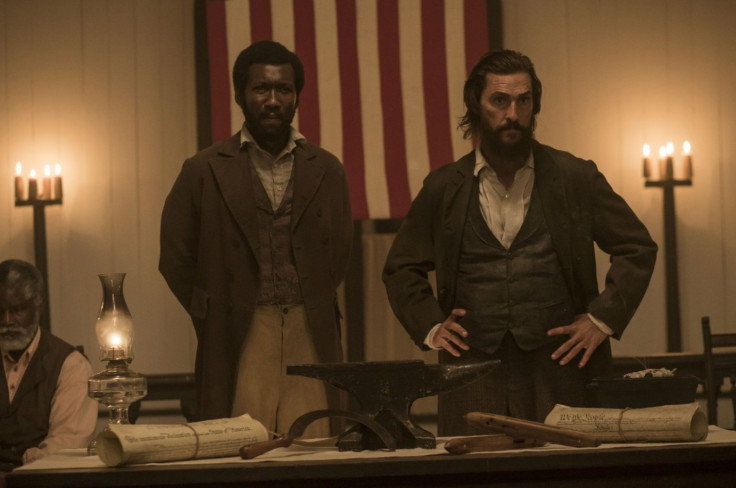Free State Of Jones review: Matthew McConaughey does his best to save bumpy biopic
While the performances and visual shine, the ambitious yet clunky script fails to hold the audience's attention.
Oscar-nominated filmmaker Gary Ross takes the real-life story of Confederate army deserter-turned-Southern Unionist Newton Knight (Matthew McConaughey) and expands on it to create biographical drama, Free State Of Jones.
Beginning in 1862, just a short while after the American Civil War began, and rounding up its events from the year 1876, the film is certainly ambitious in its story telling, but does it manage to turn a harrowing-yet-uplifting period of history into a must-see piece of cinema?
Equality, freedom and civil rights are poignant subjects to explore on the big screen which still have a huge amount of resonance today. Free State Of Jones tackles them all, so it's surprising that it doesn't quite pack the emotional punch that one would expect from such a serious and factually-based film.
It's biggest downfall? Ultimately, the film tries to try to do too much and as such loses its impact as a stirring piece of cinema. Director and screenwriter Ross tries to juggle too many characters, attempting to get you to empathise with everyone on screen without giving you time to dwell on what's happening to be able to do so.
The nub of the story is actually hard to pinpoint, as it starts off being a film about a man grown tired of fighting a rich man's war and quickly turns into a Robin Hood-style rebellion against those in power, as Knight and his ragtag band of deserters and runaway slaves storm wealthy counties and take over their land.
While it's unclear, it has dramatic moments but the film hits a rough patch when the Civil War ends and the men begin living separate lives – yet the picture continues. It touches on race, family and the growing gap between rich and poor but without a clear focus, it loses emotional depth.

Similarly, Ross glosses over significant portions of history that would have added gravitas to the narrative if they were more closely explored, such as Lincoln's Emancipation Proclamation in 1863. The drama is spread thin, striving to cram 14 years of history into an already too-long 140 minutes and you can't help but think that if he'd honed in on a more specific time period, the film would have been a lot more polished.

More concerned with factual accuracy than entertaining a cinema audience, the film squanders a decent story and suffers greatly from its lack of clear direction, often leaving the viewer unsure as to whether Knight's Company even prevailed or not. Heads up, you'd better check Knight's Wikipedia page to find that out...
Bafflingly, Ross doesn't just tell Knight's story in Free State Of Jones either. Somewhere around the halfway mark, he begins incorporating jarring '85 years later' flash-forwards which depict the court prosecution of a descendant of Knight's regarding his contested mixed-race lineage and therefore potentially unlawful marriage. While it's evident that Ross has a point, that everything Knight fought for is still very much a problem decades later, it just doesn't sit well being interjected at seemingly random intervals. And if that's not clunky-sounding enough for you, the added insertions of original photographs and hurried explanations of years that Ross skirts over don't do the movie's pace any favours either.

That being said, the film's cast just about saves the day, as across the board, every supporting actor is brilliant in their role. From Gugu Mbatha-Raw's sweetly supportive and optimistic Rachel to Mahershala Ali's stubborn Moses, who has well and truly had enough of the card he's been dealt in life. While they're not seen on screen all that much individually, there's no denying how two-dimensional, likeable and most importantly understandable they all are, and it makes for a seriously strong ensemble.
But there's no pretending that this is anything other McConaughey's film – he is the only one present on the posters after all. Slightly obscured by a scraggly beard, bloodied clothes and false browning teeth, his Southern charm shines through as Knight rallies his troop with determined speeches and fights for a cause much bigger than himself. (We think that's what he did anyway).
Free State Of Jones' visuals are just as impressive as its cast too, with scenes of overcast skies, shadowy woodland and clothes that mimic the Mississippi swamps in which the Company lived, contrasting heavily with the beaming sun against a farm slave's back or the aggressively glowing roar of a church burning down.
Towards the beginning of the film, Knight's then-wife Serena (Keri Russell) berates him for always fighting everybody else's battles instead of making time to support his own immediate family. Fortunately in the end, his quest for both fairness and freedom benefitted his own life and was undoubtedly inspiring. Ironically, if Ross's own focus had been on immediate characters and much more fine-tuned, this mediocre and meandering movie could have been somewhat of a moving masterpiece.
© Copyright IBTimes 2025. All rights reserved.






















